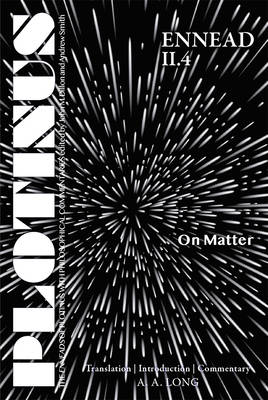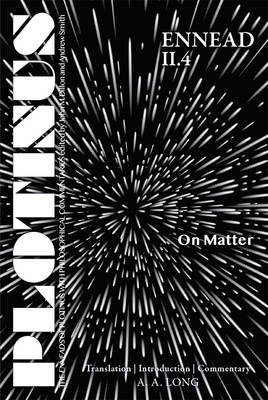
Bedankt voor het vertrouwen het afgelopen jaar! Om jou te bedanken bieden we GRATIS verzending (in België) aan op alles gedurende de hele maand januari.
- Afhalen na 1 uur in een winkel met voorraad
- Gratis thuislevering in België vanaf € 30
- Ruim aanbod met 7 miljoen producten
Bedankt voor het vertrouwen het afgelopen jaar! Om jou te bedanken bieden we GRATIS verzending (in België) aan op alles gedurende de hele maand januari.
- Afhalen na 1 uur in een winkel met voorraad
- Gratis thuislevering in België vanaf € 30
- Ruim aanbod met 7 miljoen producten
Zoeken
€ 64,45
+ 128 punten
Omschrijving
In Ennead II.4 Plotinus investigates the question of what underlies the forms that constitute the contents of our minds and senses. Aristotle had called this substrate "matter," and Stoic philosophers followed suit. With a critical review of their notions, and reference to Plato's so-called Receptacle, Plotinus develops an account of matter that makes it a supremely negative entity. How he describes the indescribable, and how he justifies incorporeal matter's indispensability to bodies, are highlights of this tenaciously argued essay. A. A. Long translates and interprets Plotinus' treatise on the matter that underlies all physical and intelligible beings. With a wide-ranging introduction and probing analysis of details, he explains the intricate structure of the text. The book will appeal to everyone interested in the history of Platonism and ancient Greek theories of the world's ultimate principles.
Specificaties
Betrokkenen
- Auteur(s):
- Uitgeverij:
Inhoud
- Aantal bladzijden:
- 239
- Taal:
- Engels
- Reeks:
Eigenschappen
- Productcode (EAN):
- 9781733535762
- Verschijningsdatum:
- 14/07/2022
- Uitvoering:
- Paperback
- Formaat:
- Trade paperback (VS)
- Afmetingen:
- 127 mm x 190 mm
- Gewicht:
- 236 g

Alleen bij Standaard Boekhandel
+ 128 punten op je klantenkaart van Standaard Boekhandel
Beoordelingen
We publiceren alleen reviews die voldoen aan de voorwaarden voor reviews. Bekijk onze voorwaarden voor reviews.









